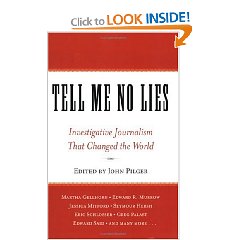 Unusual Primary Source on Stabilization & Reconstruction, April 14, 2008
Unusual Primary Source on Stabilization & Reconstruction, April 14, 2008
James Stephenson
I heard the author speak at the Army War College Strategy Conference organized by the Strategic Studies Institute (8-10 April 2008) and was so impressed I ordered his book on the spot. As a person, this man strikes me as supremely professional, competent, worldly, down-to-earth, and above all, without ego. This is a courageous individual that has specialized–only a handful can say this–in delivering aid into combat environments.
The book is relatively short–under 150 pages–well written and easy to read. Here are the highlights from my flyleaf notes:
1) 28 years experience in stabilization & reconstruction, seven failed states behind him that he tried to help
2) Foreword of the book is by Rich Armitage, a former Navy Seal that I have found to be a speaker of truth to power (one reason why the Bush Administration hated him)
3) Pentagon (Rumsfeld) blew it Part I. They closed the Department of State and the Agency for International Development (AID) out during the critical year before and year after the elective invasion and occupation of Iraq.
4) Pentagon (Rumsfeld) blew it Part II. They created a Pentagon version of AID run by a General that had no clue about the more nuanced community based assistance program, who blew his whole wad on heavy duty infrastructure projects instead of the community water, electricity, food, and sewage treatment and health security needed.
5) Pentagon (Rumsfeld) blew it Part III. Instead of embracing skilled experts from AID and elsewhere, the Pentagon staffed their program office with ideologically-pure puppies, enfants terrible whose only qualification was a resume at the Heritage Foundation and the ability to chant the mantra, “God Blesses Dick Cheney, Dick Cheney IS God.”
MOST IMPRESSIVE to me was the author's elegant discussion of how stabilization must be secured BEFORE reconstruction can begin.
The author points out that at 18 billion and up this was the largest RECONSTRUCTION project since the Marshall Plan (explicit throughout the book is the fact that the US Army, handicapped by Rumsfeld-Wolfowitz, never, ever, achieved sztabilization.
The author is kind to Wolfowitz. In his words, Wolfowitz was a decent man who fell sway to the “swan song” of Chalabi and the other knaves representing Iran and one slice of the Iraqi exiles.
The author is also careful to point out that he saw no villany, only incompetence and hubris, during his time in Iraq. [There is a superb recent memo, look for it at Earth Intelligence Network, on the utter incompetence of Foreign Service Officers and Pentagon “temp hires” to manage any kind of program.
Early on we learn that the Pentagon's program office for Iraq is totally dysfunctional, mockingly called the “Jonestown” of Iraq (where everyone drank the poisoned kool-aid).
The author slams Paul Bremmer as a good man who paid his dues in traditional diplomacy and had absolutely no clue how to manage an occupation presence. The author is careful to note that Bremer was an enigma, personable and competent but not right for the job, and to be faulted for allowing DoD to foist off on him an army of incompetent puppies, each a minor-league ideological hack.
The author is clearly a world-class expert in identifying stabilization first, then reconstruction, and in the latter, focusing on the urgency of domestic security, border control, and accommodating neighbors.
He is devastatingly critical of Admiral Nash (a Sea Bee) focusing on big engineering projects dealing with big infrastructure reconstruction, while completely missing out–not having a clue–on the importance of the less expensive but necessarily more pervasive and localized community reconstruction–rule of law, water, electricity, food, and don on.
He points out that because of ignorance at all levels of the Pentagon “chain of command” that completely excluded State and AID during the critical pre and post “Golden” years, agricultural reconstruction was not funded at all.
He returns to the theme of hundreds of US advisors whose only qualification was ideological insanity, each capable of doing great harm as long as they were within Iraq.
I am VERY impressed by the author's recounting of the logic behind ensuring that AID personnel received hardened cement residences instead of trailers–the cement could be done faster, provided more protection, and was cheaper. The idiot general in charge of housing, on the other hand, went with trailers because he was not a combat general that understood the dangers of loose shrapnel in the night (in Viet-Nam, after each of 10 coups, I would pick shrapnel out of those wonderful French roll-down windows that could stop anything short of an RPG).
Kudos go from the author to, among others:
David Wall of International Resources Group
General Peter Chiarelli of 1st Cav gains huge face here, to the point that he could be a real star at the four-star level in the near term. This is a general that understood and demanded community-level assistance to prevent the need for deaths and bullets.
Fernando Cossich is described as heroic and clearly merits his own Wiki page at Wikipedia.
Ambassador Negroponte gets very high marks from this author, who describes Ambassador Negroponte as forceful in demanding everyone recognize that his arrival represented the END of the occupation, and the beginning of US representation to the Iraqi sovereign government. I was deeply impressed by this portion of the book.
In dealing with rumors and morale, the author found, based on his experience, that transparency and constant accountability was the best.
USAID kept 30,000 young men from insurgency by employing them via various means that did not cause them to be targets.
The military, up to and including General Abizaid, had no clue what AID did or was capable of doing. A Capt as permanent liaison to AID proved to be worth his weight in gold.
During the darkest days, the author discovered that the Pentagon has no evacuation plan, a mandated requirement.
The Pentagon was considerd so very blind, reliant on sources that told them what they wanted to hear, that the CIA Station challenged and mocked the “good news blinders”. The author elaborates that the Pentagon wanted to pretend everything was fine, and did not understand that security in a non-permissive environment was something to be managed, not pretended.
The author concludes that we missed the Golden Hour by persisting in occupation and allowing looting and then allowing contractors to spend on security that should have been the precondition for contractors entering the country at all.
The author is careful to praise the contractors. They did what they were asked to do, in a non-permissive environment that the Pentagon allowed to exist when General Shinseki, General Zinni, and so many others had warned in advance, as did Mr. White of the Department of State, of the insanity of going it at all, much less “Rumsfeld Lite.”
The author concludes that Iraq cannot remain whole. The Kurds and the Shi'ites have their act together and are already independent, while the Sunnis self-immolate in chaos aided and abetted by US incompetence.
The author himself recommends the following two books:
Blood Money: Wasted Billions, Lost Lives, and Corporate Greed in Iraq
Imperial Life in the Emerald City: Inside Iraq's Green Zone (Vintage)
I put this book down with a sense of reverence and admiration. I knew AID people in Southeast Asia, in Viet-Nam, in Thailand, and elsewhere, including AID people that died in the line of duty. I am now convinced we need a Vice President for Foreign Affairs with complete oversight of State, AID, a restored US Information Agency with the Broadcasting Board of Governors and the Open Source Agency as the two main divisions, and Defense as a reduced power.
Of all the books I have read on Iraq, this is the one that I take most seriously. It is a first-person account, focused on the good side of America. The author is clearly qualified to be director of AID under a sane president and a legal vice president, and I for one think he is one of the very best men in public service.
See also:
None So Blind: A Personal Account of the Intelligence Failure in Vietnam
Who the Hell Are We Fighting?: The Story of Sam Adams and the Vietnam Intelligence Wars
A Pretext for War : 9/11, Iraq, and the Abuse of America's Intelligence Agencies
Fiasco: The American Military Adventure in Iraq
Squandered Victory: The American Occupation and the Bungled Effort to Bring Democracy to Iraq
State of Denial: Bush at War, Part III
The Bush Tragedy
Vice: Dick Cheney and the Hijacking of the American Presidency

![]() An Utterly Superb Intellectual Contribution–a Major New Reference
An Utterly Superb Intellectual Contribution–a Major New Reference





